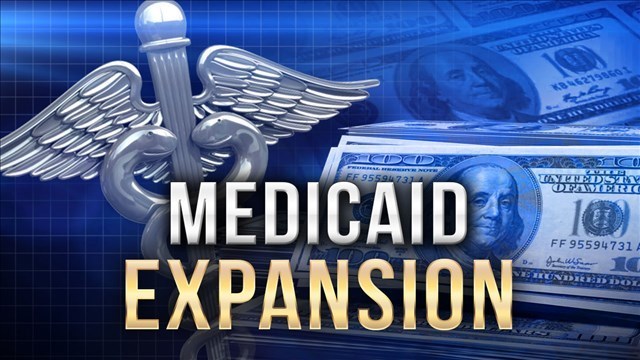By Tom Coulter
Wyoming Tribune Eagle
Via- Wyoming News Exchange
CHEYENNE — State lawmakers on the Joint Revenue Interim Committee voted 8-5 Tuesday to move forward with a bill authorizing Gov. Mark Gordon to expand Medicaid coverage in Wyoming.
If approved by the full Legislature next year, the bill would allow for expanding Medicaid to uninsured people whose income is at or below 138% of the federal poverty level.
An estimated 19,000 people in Wyoming would be newly covered within 24 months of the expansion, according to recent estimates from the state Department of Health.
Wyoming would cover 10% of the costs associated with expansion, a total of about $18 million in general funds during the first biennium of implementation. The federal government would pick up the remaining expense under the provisions of the Affordable Care Act.
The Legislature has considered Medicaid expansion for several years, and the state House of Representatives killed a similar bill during the 2019 general session.
Yet, for some legislators, this vote was different.
“I am totally opposed from a business point of view to Medicaid expansion, but the time has come,” said Rep. Pat Sweeney, R-Casper. “The data is supportive, and I believe that for the future of this state, it’s the right thing to do.”
Several representatives of health-care industries spoke in favor of the bill during the meeting, though the testimony that drew comments from the committee came from a group of University of Wyoming medical students in support of expansion.
Connor Morton, a Casper native speaking on behalf of the group, said he and his colleagues have seen the personal and financial toll of being unable to afford health care.
“This lack of access to affordable care isn’t just felt by our patients. It’s felt by us,” Morton said. “This constant fight … ends up contributing to the burnout that is reaching near-crisis levels in the medical profession.”
Morton said many of the medical students in attendance want to stay in the state, adding that the decision on Medicaid expansion will affect them personally.
“After spending many worthwhile years and thousands of dollars on our education, we would like to practice in our home state, in our communities and in a patient-centered approach, not worried about whether or not our patients can afford health care,” he said.
Lawmakers have been wary of taking on added costs, given the state’s economic outlook. In response to the students’ testimony, Rep. Tim Hallinan, R-Gillette, said he appreciated their perspective, but added that he would be voting against the bill.
“This is a financial issue for me,” Hallinan said. “I think the 50% the state pays for the current Medicaid population … is likely to be applied to these Medicaid expansion people in the future. And I believe that that is an expense that the state cannot afford.”
Others argued expansion was common sense. Thirty-six states have accepted Medicaid expansion since the Affordable Care Act became law in 2010, and Chris Merrill, executive director of the Equality State Policy Center, said Wyoming should join them instead of leaving federal money on the table.
“As federal taxpayers, Wyoming residents are basically subsidizing the residents, employers and health-care providers in expansion states,” Merrill said.
Merrill also argued expansion could be a boon for rural hospitals and health centers across the state by creating a healthier population and giving patients options beyond going to the emergency room.
“This should help reduce the cost of uncompensated care for small-town and regional hospitals,” Merrill said. “Insured individuals are more likely to receive needed care and preventative screenings, and that should lower future medical costs.”
Josh Hannes, a lobbyist for the Wyoming Hospital Association, said the state has taken on more than $100 million in uncompensated care annually.
“For every dollar that we’re spending to cover those costs, those are dollars not invested in physician recruitment. Those are dollars not invested in upgrading facilities. Those are dollars not invested in developing capabilities and systems of care that keep people healthier and not in the hospital,” Hannes said.
Hannes added that expansion would not solve every cost issue, but he said it would help the state avoid having a fragmented health-care system.
Throughout the meeting, the group of UW students served as a physical reminder of the state’s challenges with recruiting and retaining medical professionals. Jan Cartwright, executive director of the Wyoming Primary Care Association, said it’s important to keep the students in-state.
“Instead of hoping that they stay here and practice medicine, what I’m asking you to do is expand Medicaid so that they do have infrastructure and a payment methodology so that they can stay,” Cartwright said.
Because the 2020 legislative session will be focused on the state’s budget, the Medicaid expansion bill will need to gain two-thirds approval from its house of origin to be referred to a committee.
Despite past rejections of Medicaid expansion, some lawmakers felt the state’s budget situation and the potential for more job losses could change legislators’ minds this time around.
“Those folks who have lost their jobs are going to need health care,” Rep. Cathy Connolly, D-Laramie, said. “While the bill may be deja vu, I think our situation is very different.”







